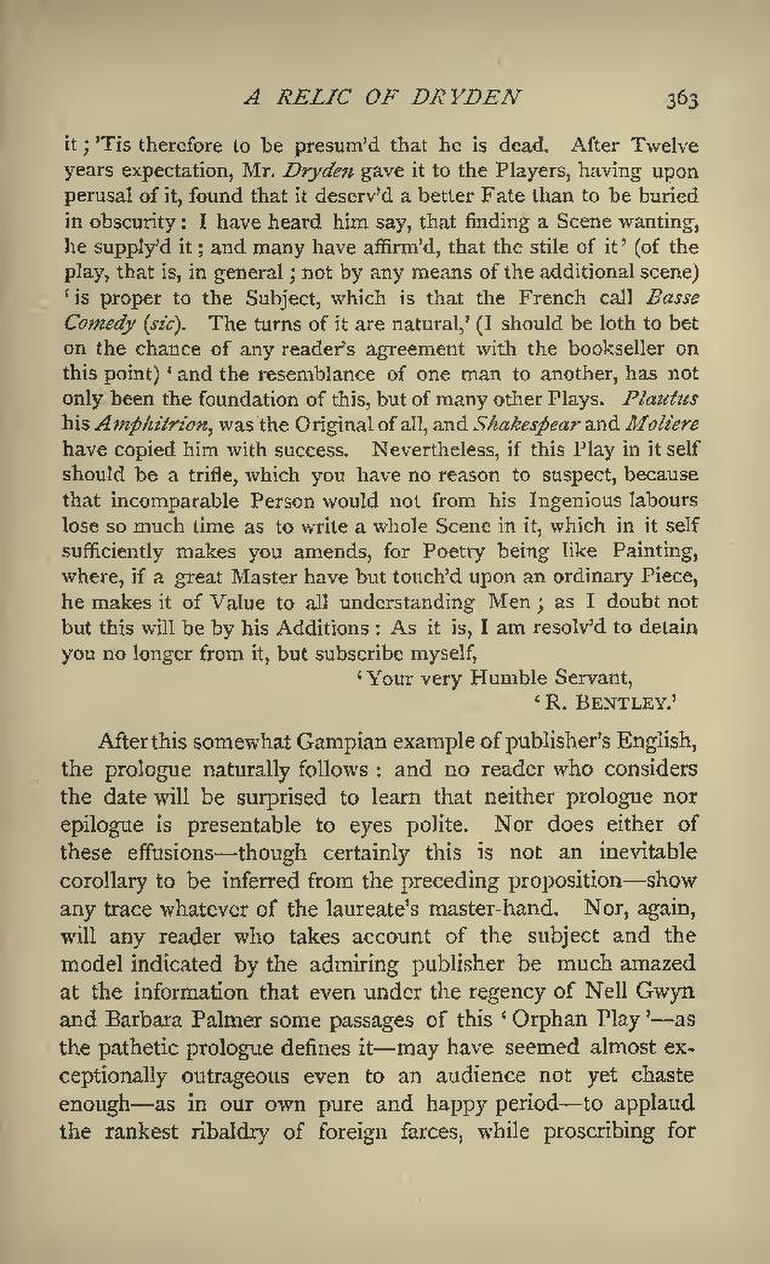it; 'Tis therefore to be presum'd that he is dead. After Twelve years expectation, Mr. Dryden gave it to the Players, having upon perusal of it, found that it deserv'd a better Fate than to be buried in obscurity: I have heard him say, that finding a Scene wanting, he supply'd it; and many have affirm'd, that the stile of it' (of the play, that is, in general; not by any means of the additional scene) 'is proper to the Subject, which is that the French call Basse Comedy (sic). The turns of it are natural,' (I should be loth to bet on the chance of any reader's agreement with the bookseller on this point) and the resemblance of one man to another, has not only been the foundation of this, but of many other Plays. Plautus his Amphitrion, was the Original of all, and Shakespear and Moliere have copied him with success. Nevertheless, if this Play in it self should be a trifle, which you have no reason to suspect, because that incomparable Person would not from his Ingenious labours lose so much time as to write a whole Scene in it, which in it self sufficiently makes you amends, for Poetry being like Painting, where, if a great Master have but touch'd upon an ordinary Piece, he makes it of Value to all understanding Men; as I doubt not but this will be by his Additions: As it is, I am resolv'd to detain you no longer from it, but subscribe myself,
"Your very Humble Servant,
'R. Bentley.'
After this somewhat Gampian example of publisher's English, the prologue naturally follows; and no reader who considers the date will be surprised to learn that neither prologue nor epilogue is presentable to eyes polite. Nor does either of these effusions-though certainly this is not an inevitable corollary to be inferred from the preceding proposition-show any trace whatever of the laureate's master-hand. Nor, again, will any reader who takes account of the subject and the model indicated by the admiring publisher be much amazed at the information that even under the regency of Nell Gwyn and Barbara Palmer some passages of this 'Orphan Play'—as the pathetic prologue defines it—may have seemed almost exceptionally outrageous even to an audience not yet chaste enough—as in our own pure and happy period—to applaud the rankest ribaldry of foreign farces, while proscribing for
